Opinionated and passionate about: TV & film, books, dystopias and baking. Godspeed 🧿✨
Last active 2 hours ago
Don't wanna be here? Send us removal request.
Text
Thank you to the United Kingdom for giving this to the world.





















two honorable mentions to Ireland


Never stop exporting these men and characters to the world
19 notes
·
View notes
Text
Ignoring isn't the same as ignorance, you have to work at it.
- The Handmaid's Tale, Margaret Atwood
19 notes
·
View notes
Text
Nick Blaine – Final Thought

Lately, I’ve been haunted by one obsessive thought:
What could Nick’s final thoughts have been, onboard that fucking plane? I love writing — it’s a way for me to let out my thoughts, and sometimes release a buildup of heavy emotions. I know there are incredibly talented people on this platform who write amazing fanfics and beautiful pieces. I’ve never shared anything I’ve written before, but I felt like sharing this one here, in the hope that maybe it might resonate with some of you. It’s a raw, messy, chaotic, unpolished piece — something that could represent what Nick’s mindset and last thoughts might have been before that plane exploded.This is not canon. I chose to imagine that Nick had a sense that something was going to happen, that it was the end. I hope a few of you might connect with it.
Nick — One Minute Left
I’m sitting here, waiting for a flight that feels heavier than the sky. And all I can hear is silence. The kind that presses against your ribs. The kind that knows something you don’t.
They say you know when it’s your time. But I don’t feel fear. I feel something colder. Something lonelier.
I think of her. I always do, in these moments between orders and obedience. I wonder if she’s safe. If she’s warm.If she’s alright. I wonder if she’s thinking of me. If she knows I’m here. If anyone told her. If she’d care.
She wouldn’t let this happen… right?Not if she knew. Not after everything. After the child we made in secret. After every breath I held, every lie I told, every truth I buried… for her.
I kept my heart somewhere between her voice and her silence. Maybe this is what I get. For staying in the grey too long. For loving in the shadows. For believing I could be forgiven for wearing their uniform.
That weight in the air — that crackle in the silence. Like heat before a storm. I turned just slightly, instinctively. Hoping. Imagining. But the fog held its secrets. And still, I boarded.
But I swear, I felt her. I turned slightly. Not enough to make it obvious. Not enough to see. But enough to hope.
Because if she stood in the fog, unseen, and didn’t call out — How could she do that? How could she let me go, after all we survived? Did she think I deserved this? Was I just easier to erase than to forgive?
Then I’m not sure what’s worse: The explosion waiting for me in the sky, Or the realization that I spent all these years dying for someone who decided, in the end, I wasn’t worth saving.
So I tell myself the only thing that lets me breathe:
She didn’t know.
Because if she did — and let me board anyway — That’s a kind of death no fireball could ever match.
It wasn’t the plane that killed me. It wasn’t Gilead. It wasn’t the war. It was watching her walk away.
The last time she saw me, she looked at me like I was something foul. Not a person. Not someone she used to love. Just a living reminder of everything she wanted to escape.
The last time she looked at me, it was like I was something she'd already buried. A memory she didn’t want to remember. I saw it in her eyes — the shift. I was no longer him. Just the reason it still hurt.
But do I regret saving her? Never. Not for a second. I would do it all again — every lie, every bruise, every breath in the dark — just to see her safe.
Because that’s what love does. Even when no one sees you. Even when no one says your name. It stays.
I stayed when she ran. I covered her when they hunted her.
I loved her when she was broken. When she was furious. When she was cruel. I loved her when I shouldn’t have. When it hurt. When it cost me everything. It’s the kind of love that doesn’t ask for anything. That just is. Raw. Honest. Unforgiving in its weight. It was never about ownership. It was about orbit — like no matter how far she drifted, I was always pulled back to her. Like I was made to stay.
Because this place eats dreams. And men like me? We were never meant to keep anything beautiful.
I won’t see Holly again. I won’t get to hold her one last time. To tell her how much I loved her. How much I gave up so she could be free. She won’t know that I whispered her name in rooms full of enemies. Will she be safe now? Will she know who I was? Or will they tell her I was just a shadow? A mistake?
She won’t even remember me. Not the sound of my voice. Not the way I held her, so small, so light, like she’d break if I breathed too hard. She’ll grow up not knowing I was even real. And maybe that’s better. Better than being the ghost in the room. The one no one talks about. But God, I wanted to raise her. To hold her hand. To walk her to school. To tell her stories at night. To make her feel safe. I wanted to build her a world where she didn’t have to be afraid. Will Holly grow up safe?
And my son… He’ll be born into a broken world. And I won’t be there to tell him how to survive it. What if he becomes one of them? What if I die trying to stop the machine, and he’s raised inside it — thinking it's all normal? I won’t be there to guide him. To pull him back when the power starts to feel good. To show him that mercy is strength, not weakness. I won’t get to be his father.
Will he look like me? Will he smile like I did when I still believed in things? Or will he grow up and become everything I fought against? Will someone tell him? Who I really was?
Both of my children — No faces of me. No story. Just silence. The same silence I’ve lived in for years.
Maybe I stopped being someone. Maybe I became the thing everyone always thought I was. The guy in the shadows. The Eye. The soldier. The mistake.
It’s not dying. Not being erased. It’s knowing I’ll never get to ask her why. Never get to hear her say it to my face. That she gave up on me. That I wasn’t worth saving. And maybe I wasn’t. Maybe I was always just... temporary. A detour. The guy you love in secret, but never enough to fight for.
Because love, for me, was never about being saved. It was about staying. Even when no one else did.
I stayed quiet. I did the work. I carried the blood on my hands so she didn’t have to. We went through fire together. We made something impossible. A child. A moment of light in a world built to kill it.
Because how could I explain what betrayal looks like when you're playing chess against monsters and sacrificing pieces just to keep someone breathing?
To her now… I’m just the handmaid’s mistake. The one she buried to survive.
She once told me she loved me. I believed her. I still want to. But if love ends with silence… If love means watching someone walk into death and saying nothing… Then maybe she stopped loving me long before this flight ever took off.
So yeah, maybe she did hate me in the end. Maybe I deserve that. But I keep thinking… did she ever really love me? Was I just a way out? A break between the pain?
Should I have fought harder? Run sooner?
But I loved. And I tried to protect what mattered.
The plane is quiet. The kind of quiet that hums under your ribs. You start to hear your own heart, and you wonder when it’ll stop.
And wherever they go next — June, Holly, my son — I’ll be watching. Somehow. Even if they forget me. Even if she looks back one day and still sees a monster — I’ll still be loving them. Even from nowhere.
All the pain, all the blood, all the nights I didn’t sleep — It was all for her. For Holly. For the tiny, stupid dream that maybe I wasn’t nobody after all.
Now I’ll die like I lived. In silence. In the middle of things. Alone. But if there’s anything after this… I’ll find them. And I’ll watch over them. Even if they never say my name again. Even if they think I was just some mistake. I’ll still be there. Because that’s love. The kind you don’t get twice. The kind that doesn’t ask questions. The kind that stays. Even when no one else does.
Call it the ghost of a woman I can’t seem to forget.
Call it love.
But it was always her.

35 notes
·
View notes
Text
But she always babies Luke, asks him to be careful, to the point where he tells her “you underestimated me”. She over estimated Nick’s power and influence (like a lot of viewers) and continuously pushed his limits. She used him, plain and simple.
She told him Luke and Moira were a part of her, and although Nick told her that’s how he felt about her, she clearly did not reciprocate the feeling.
This whole thing is sending a dangerously ill intentioned message. They had the perfect opportunity to make Nick a male ally and instead they turned June into a psychopathic manipulator just like Serena.
Even Luke’s allyship fell flat and was more testimony of his misogyny and need to show off and do big scary things in the name of being a Man and proving himself to her, probably exacted by the fact Nick had to save him.
Normal love:
“No, please don’t do this. I’m worried about you. It’s dangerous. I can’t lose you.”
June’s love:
“Go. Do it. Take it. Save them.
‘You gave up those women to save yourself.’ 😭😭😭💔💔💔💔
She treated him like her personal gladiator—trained to fight for her cause, to impress the crowd, to make her proud from the stands. He was supposed to win, to bleed beautifully for the right reasons. But when he couldn’t deliver the perfect victory, when he came back bruised and human—she turned her back. Called his life brutal. Left him in the dirt of the arena, as if he had failed her.
31 notes
·
View notes
Photo
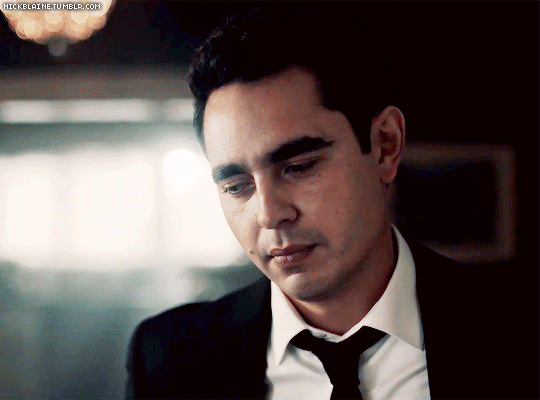
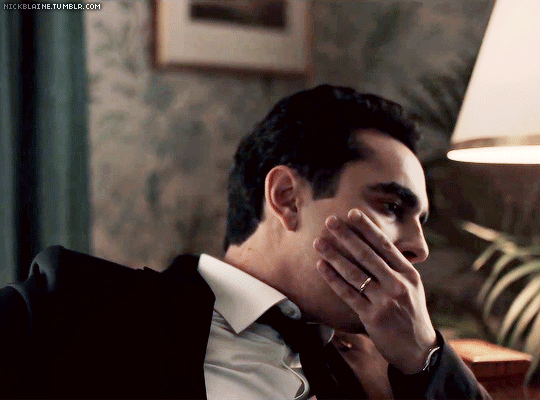


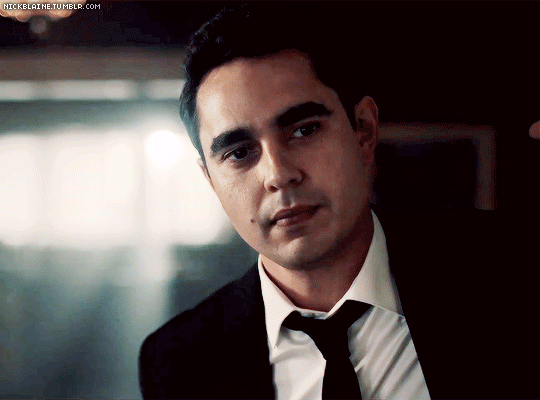
Max Minghella as Nick Blaine THE HANDMAID’S TALE | 5x06 – “Together”
290 notes
·
View notes
Text
Not many things are bringing me joy lately, I’m going through a bit of a rough patch and it’s probably why I’ve been obsessing over The Handmaid’s Tale and how horrible that last season was. I’ve been trying to detach myself from it, I stopped my re-watch and I am trying not to engage with social media posts I don’t agree with.
One thing that’s been uplifting and joyful is reading and writing fanfics. It’s comforting and it’s easing the pain of my favorite ship and favorite character going up in flames (literally).
My current favorite is Until You See Me by @just-b-wilde I’ve also read all their THT fics 😌 I literally kick my feet and giggle with every update.
If you have any Osblaine or alternate ship fanfics to recommend please comment or reblog 🫶🏽 I started looking on Ao3 but it keeps crashing on my phone.
Also, someone at my work said “don’t let the bastards grind you down” yesterday and I fired up Teams so fast to message them ���
19 notes
·
View notes
Text
Calling someone like Maxine dramatic when she is truly struggling and trying to open up is so mean, especially coming from her best friends :(
Maxine was done SO DIRTY up until the end of the season. I relate to her and I feel so bad :( "we just grew apart, so what"????????
She just wants to talk about her feelings and communicate, no one can convince me that isn't okay
534 notes
·
View notes
Text
I saw something once about how it’s not “women supporting women” it’s “women protecting women” because it doesn’t matter how much you hate her, if you see her in harm’s way you get her out of the way and i’ve never seen anything that encapsulates it more than “Ginny and Georgia” when Joe mentions to Cynthia that he thinks Georgia might be in trouble and then the next day she sees Gil putting hands on Georgia and she goes and pulls her away and then blacklists him in the Wellsbury realty community after they spent 17 episodes literally despising each other
1K notes
·
View notes
Text
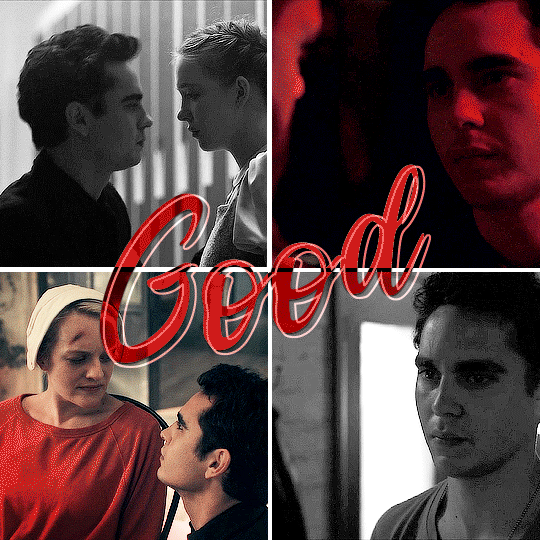


NICK BLAINE - GOOD, KIND & BRAVE *and no one will convince me otherwise
170 notes
·
View notes
Text
Georgia's expression when Paul backed her into a corner and almost hit her ,the one man she thought was different and she could trust ,was one of the most painful things this season
247 notes
·
View notes
Text
Joe: I really like you
Georgia: I've killed three men, and all the stuff the media said about me is true.
Joe: I really like you and I support women's wrongs
402 notes
·
View notes
Text
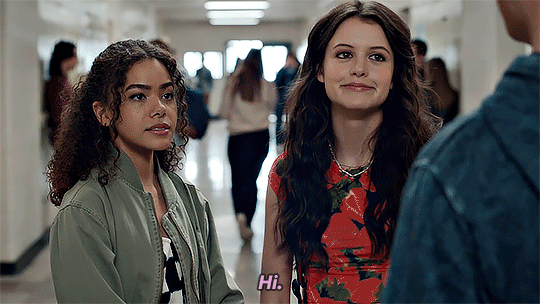


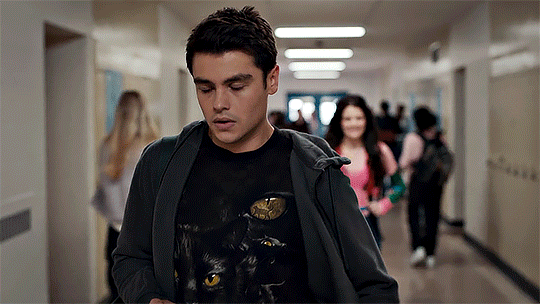
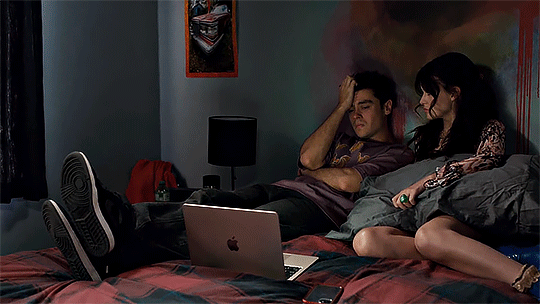
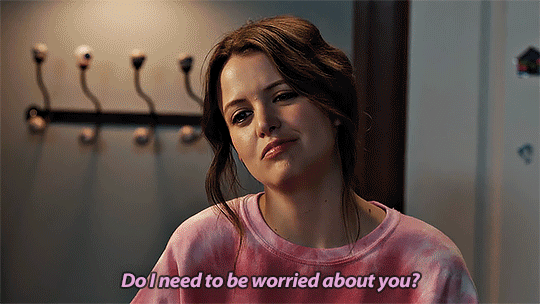

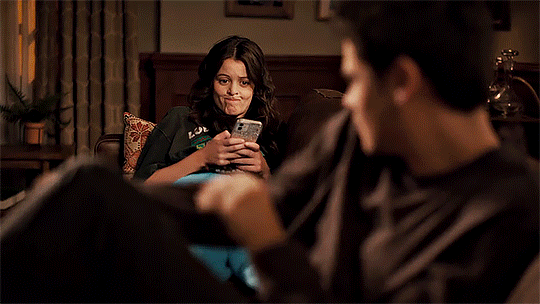

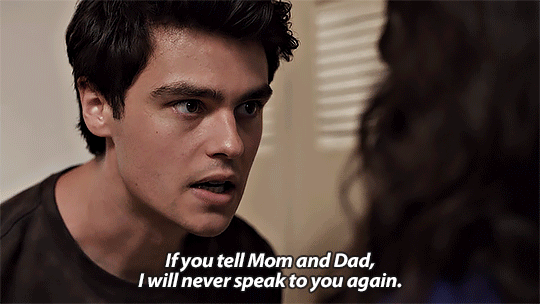
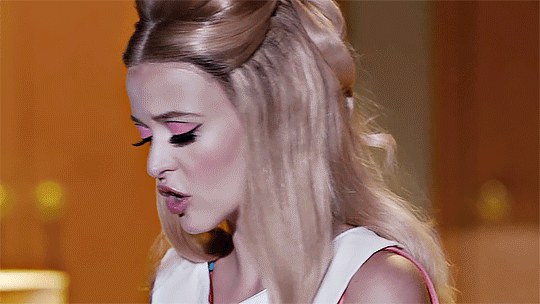


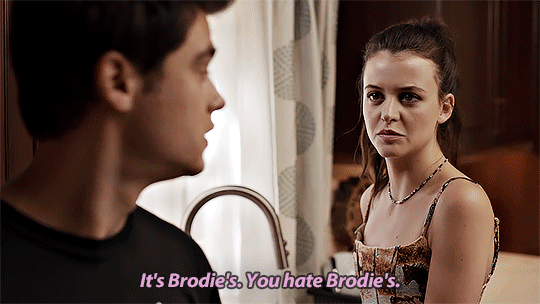

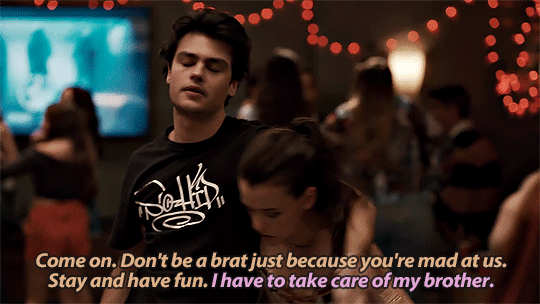
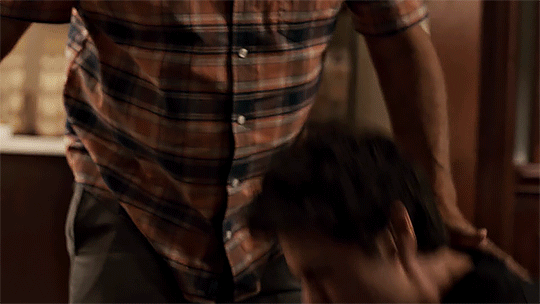
Sara Waisglass & Felix Mallard as Max & Marcus Baker GINNY & GEORGIA (2021–present) Season 3
905 notes
·
View notes
Text
I love this fic 🫶🏽

You can find all available chapters on AO3.
9 notes
·
View notes
Text

Sweet On You
Chapter 2: The Driver
Beth leaves the Red Center and meets Nick Blaine and Commander Lawrence. Are these men worth trusting?
#beth x nick#the handmaid's tale#tht fanfic#nick blaine#ao3#ao3 fanfic#sweet on you#Martha Network#aunt Lydia
3 notes
·
View notes
Text
I read this twice and I feel reassured and validated, even after all the gaslighting and bullying from some fans and the writers, that I am on the right side of this discourse.
The Betrayal of Nick Blaine: How The Handmaid’s Tale Undermined Its Own Storytelling

As a university professor with a PhD in literature, I’ve dedicated my career to analyzing narrative structure, character arcs, and thematic coherence. And I can say this with full confidence: what the writers did to Nick Blaine in Season 6 of The Handmaid’s Tale was not bold, subversive, or daring — it was a narrative betrayal.
And just to be clear: I’m not a shipper. I didn’t love Nick because of his romance with June. I appreciated him as a deeply layered character — one whose quiet resistance stood in stark contrast to the more performative defiance of others. Not every act of heroism is loud. Nick’s resistance began long before June entered his life, and for several seasons, the writers honored that. Until they didn’t.
Nick represented something rare on television: a portrayal of a man caught inside a brutal system, not loud or showy, but quietly working to survive while retaining his humanity and fighting back in the ways available to him. His arc was thoughtful, subtle, and realistic — and it offered a necessary counterpoint to the broader, more visible forms of rebellion in the series. That narrative was coherent, moving, and consistent — until Season 6 shattered it for the sake of shock value.
A HISTORY OF RESISTANCE — CAREFULLY BUILT
Nick’s arc was never centered on power. In fact, he resisted it. He smuggled contraband to Jezebels, joined the Eyes in order to report predatory Commanders (after Waterford’s first Handmaid died by suicide), and helped take down Commander Guthrie, one of the architects of the Handmaid system. These weren’t incidental moments — they were intentional signs of internal rebellion that the show carefully planted over multiple seasons.
After meeting June, Nick continued to act strategically. He was the one who secretly smuggled the Jezebels letters out of Gilead and delivered them to Luke in Canada — an act that directly led to Canada refusing to sign a diplomatic agreement with Gilead. And crucially, Nick did this without June asking him to or even knowing about it. At the time, June was in a terrible mental state, so desperate that she tried to burn the letters in the sink. Nick hid the Jezebels letters in his apartment before Eden moved in — making it all the more risky once she arrived and began snooping through his things.
His promotions weren’t rewards but consequences. Serena arranged his marriage to Eden out of jealousy. His rise to Commander wasn’t a reward for loyalty — it was a consequence of his decision to pull a gun on Fred to help June and Nicole escape, as even Joseph Fiennes has confirmed in interviews. Even his marriage to Rose served a clear purpose: to get closer to Hannah’s captors, the Mackenzies, and position himself in a place where he could act.
Importantly, the Marthas in Season 4 speak to Nick like an equal, not like someone they fear. One even asks him, “Is this business as usual?” — a small but significant clue that Nick had been working with the Martha network for a long time. This wasn’t a sudden shift. His ties to the resistance were consistent and deliberate. Even other Commanders call him a “boy scout” in Season 6 — a nickname that reflects his perceived moral rigidity and difference from the men around him.
THE HINTS THE WRITERS LEFT — THEN ABANDONED
Throughout the first five seasons of The Handmaid’s Tale, the writers laid down clear and deliberate hints that Nick was meant to function as a quiet resistor embedded within Gilead’s system. His actions were not accidental or incidental — they were purposeful choices, woven into the narrative to build a coherent, morally complex character.
Another major hint came in a cut scene from Season 3 — one that never made it to the screen but is preserved in the official scripts. In that scene, Nick is shown at the front during Gilead’s military campaigns, standing alongside Commander Mackenzie. This wasn’t designed to show him as complicit — quite the opposite. It placed him close to Hannah’s captors, setting up his position to act as an inside link, a person who might eventually help June find and rescue her daughter. This scene reinforced what the show had been quietly building all along: Nick was where he needed to be, playing the long game.
His abrupt marriage to Rose further aligned with this arc. It wasn’t a romantic choice or a reward — it was another calculated move to get close to the Mackenzie family. The fact that we saw him and Rose at dinners with them in Season 5 wasn’t coincidence — it was strategy. Nick was positioning himself exactly where he could observe, influence, and perhaps, one day, act.
And here’s something telling: in his apartment above the garage, we see Love in the Time of Cholera by Gabriel García Márquez. That’s not just a random prop. It’s a novel about enduring love and resistance in the face of cruelty and loss. The writers deliberately placed that book in his apartment. It was a clear, intentional signal: Nick was written as someone with inner depth, quiet resistance, and a poetic soul. Bruce Miller says in The Art and Making of The Handmaid’s Tale:
“We were very careful about what books he reads, what books he has, and where we got them.” (p. 34)
And yet, all of these threads were dropped in Season 6. The Mackenzies vanished from the story. The careful groundwork that had been laid for Nick’s internal resistance arc was erased, discarded in favor of a last-minute, illogical narrative pivot that portrayed him as complicit without reckoning with everything the show had previously told us about him.
What’s worse, both the show’s own deleted material and the actual scenes up until Season 6 make it clear that Nick was never meant to be the villain they later tried to paint him as.The official scripts and cut scenes show him as a man horrified by the violence of Gilead’s rise, caught in it but never fully part of it. These clues weren’t just abandoned — they were actively contradicted in a way that undermined both the character and the larger themes of the series.
WHAT THE CREATORS & ACTOR SAY
Before Season 6, both the creators of The Handmaid’s Tale and actor Max Minghella consistently described Nick as a fundamentally decent man — a character carefully constructed to be morally complex, but not complicit in Gilead’s ideology.
Max Minghella, who portrayed Nick, made his view of the character clear as early as 2018:
“I trust Nick. I stand by him … at the root of Nick, he’s a good person. Whether he always does the right thing is a different question.” (Glamour, 2018)
Minghella recognized Nick as morally conflicted but ultimately decent — a man navigating impossible choices in an impossible world. His performance was built on the understanding that Nick was not a villain, but a man trapped by circumstances beyond his control, revealing himself through small gestures and quiet decisions.
In 2022, at the end of Season 5, showrunner Bruce Miller reinforced this characterization:
“I know what we’re setting up for Nick, which is exactly what you think it is. He’s the guy who we think he is. And even if he tries not to be the guy he thinks he is, it’s either going to be very uncomfortable for him like he is with Rose, or it’s going to fail and he’s going to end up not being able to stop himself from punching Lawrence. I think the nice thing is he follows his heart, and the scary thing is he follows his heart.” (Deadline, June 2022)
This statement from Miller is especially revealing in light of what ultimately unfolded in Season 6. His words confirm that as of the end of Season 5, Nick was intended to remain exactly as the audience understood him: a man driven by emotion, not ideology; someone uncomfortable when forced to conform; someone who couldn’t suppress his decency even when doing so put him at risk.
However, after Season 6, Miller’s commentary took on a different tone, attempting to reframe Nick’s arc:
“Nick isn’t choosing Gilead as a sudden endorsement of its beliefs and practices, but rather a belief that there’s no beating this regime; it’s better to protect yourself by moving with it rather than against it.” “Nick was trying to stay out of trouble … thinking about how to keep himself safe for his family.” (TV Insider, 2025)
These post-finale remarks sought to justify Nick’s sudden portrayal as complicit in Gilead’s horrors, but they stand in stark contrast to Miller’s earlier statements. What happened in Season 6 was not the culmination of a long-planned character journey; it was a last-minute pivot that abandoned Nick’s carefully built arc. His proximity to Gilead’s power structures had always been framed as about survival, not ideology — a distinction that Season 6 discarded.
Even Minghella was surprised by the shift in Nick’s moral framing, as he revealed in an interview with ELLE in 2025:
“Transparently, I was surprised … I thought it was a really bold and interesting choice to bring that story into this more nihilistic viewpoint.” “Maybe I hadn’t been playing this character correctly the whole time … there was probably a darker side to him that I didn’t realize was there.”
When even the actor playing Nick for six seasons no longer recognizes the character he’s portraying, it highlights how drastic and jarring the shift in writing was. Nick’s final arc wasn’t the result of a gradual, coherent evolution — it was a sudden, dissonant rewrite that undermined everything the audience, and even the show’s own team, had come to understand about him.
Where once the creators framed Nick as a survivor and quiet resistor, they later attempted to retroactively paint him as complicit. This contradiction is not just a failure of internal consistency — it’s a betrayal of the character they themselves had worked so carefully to build.
A SHIFT BEHIND THE SCENES — AND ONSCREEN
The betrayal of Nick’s arc didn’t happen in a vacuum. It was the result of major shifts behind the scenes that dramatically altered the show’s direction and tone, particularly in Season 6.
After Season 4, there were significant changes in the writers’ room, and after Season 5, Bruce Miller — who had been the showrunner and primary architect of the series’ complex moral landscape — stepped down as showrunner to focus on developing The Testaments adaptation. What followed was a tonal and narrative shift that was most starkly reflected in the treatment of Nick’s character.
In Season 5, the writers appeared to be setting up Commander Lawrence as the morally compromised figure whose choices would catch up with him. Lawrence, after all, had designed Gilead. He was one of its architects — a man who wielded enormous power and made decisions that cost thousands of lives, including the bombing of Chicago and the systemic torture of women. He was unwilling to help June find Hannah, even when she begged him, and he stood by as Gilead shot down American planes attempting to raid Hannah’s school. He didn’t intervene to stop this act of brutality, just as he never truly opposed the suggestions of other Commanders to have June killed when she became too much of a threat. But reportedly, Bradley Whitford — who plays Lawrence — pushed back against having his character face the full consequences of those choices.
So what did the writers do instead? They redirected that arc onto Nick. Rather than grappling with the moral failings of Gilead’s true architects, the show chose to scapegoat the one male character who had consistently resisted, quietly and at great personal risk, from the inside.
The result was a jarring pivot in Season 6, where Nick was denied the nuance and complexity afforded to characters like Serena, Lydia, Lawrence, and even Naomi Putnam. Naomi, a character who had benefitted enormously from Gilead’s brutal hierarchy and who had always relished her privileged position, was suddenly handed a redemption arc without narrative justification. Her decision to give Charlotte to Janine came out of nowhere, contradicting everything we had seen of her character before.
Meanwhile, Nick — who had quietly resisted for years, who had risked his life for June, Nicole, and the resistance — was given no such grace. His entire arc was collapsed into a simplistic and inconsistent portrayal of complicity, as if all his sacrifices and small acts of rebellion had never happened.
The complexity that had once made The Handmaid’s Tale so compelling was flattened in favor of a reductive, black-and-white view of its characters — one that betrayed both Nick and the show’s own core themes.
THE GASLIGHTING OF FANS
To make matters worse, in the wake of justified fan backlash over the abrupt and illogical rewriting of Nick’s character, the public statements from the show’s creators, writers, directors, and even lead actor felt like gaslighting. Rather than acknowledging the inconsistency or taking responsibility for the narrative pivot, they shifted blame onto the audience — particularly the female fans who had thoughtfully engaged with Nick’s arc for years.
The writers claimed that viewers misunderstood Nick because “we don’t see 95% of the things Nick does in Gilead.” This was offered as an explanation for why fans were supposedly confused — suggesting that any contradictions in Nick’s character came not from inconsistent storytelling, but from unseen off-screen actions. The writers also implied that fans had misjudged Nick because they saw him primarily through June’s eyes, and that her love for him clouded both her perception and, by extension, that of the audience. This framing felt deeply patronizing. It reduced thoughtful, critical engagement with the character to the idea that fans (especially women) were simply too emotionally attached to see the truth. The creative team further argued that Nick had plenty of chances to leave Gilead but chose not to, reinforcing their revisionist narrative. What makes this claim especially disingenuous is that the show itself repeatedly demonstrated how difficult, if not impossible, it was to leave Gilead. Even Lawrence — a man with immense power — tried to leave in Season 3 and couldn’t. To suggest that Nick could have simply walked away contradicts the very world-building the writers established.
And then Eric Tuchman went on to claim:
“Even though Nick is a wonderful savior and protector for June and Max Minghella is an incredibly charismatic actor with wonderful chemistry with Elisabeth Moss, Nick has a life beyond June in Gilead. We’ve known since Season 1 he was an Eye, as well as a driver. The Swiss didn’t want to talk to Nick because he was a war criminal and couldn’t be trusted. Serena told June, ‘Didn’t Nick tell you what he did? To help create Gilead?’ — and it was something ominous. June chose not to ask any further questions. We know that he bombed Chicago and a lot of innocent people were killed — June and Janine were there. Yes, he was following orders, but Nick has always been a fully willing participant in Gilead. He’s always embraced Gilead. The only times he ever helped the resistance were because of his connection to June. She has been his beacon to do the right thing. Nick’s betrayal was proof he wasn’t really part of the resistance.” (Cast Q&A, @handmaidsonhulu on Threads, 2025)
But these statements are deeply misleading. They ignore what the actual canon of the show established and contradict the very material the writers originally produced. The Swiss refused to talk to Nick not because of war crimes, but because of optics and politics — as shown in official deleted scenes and the scripts archived at the Writers Guild. In those cut scenes, Nick is portrayed during the rise of Gilead not as a war criminal, but as a minor guard, visibly horrified, described as “looking sick” at the violence unfolding around him. When a comrade is killed, Nick fires back “out of instinct” — hardly the mark of a man shaping or embracing the regime.
Another scene — one that did air — shows Nick returning a salute from Gilead troops. In the official script, this moment is described with a crucial note: Nick is “hating all the choices that led him here.” His internal conflict is explicitly spelled out, revealing that even in this small gesture of outward compliance, he is burdened by regret and trapped by circumstances. This wasn’t a man embracing Gilead’s ideology. It was a man caught in a web he couldn’t easily escape, trying to survive while carrying the weight of every decision that brought him to that point.
Bruce Miller himself confirmed that Serena’s ominous comment to June about Nick’s role in creating Gilead was a lie, meant to hurt her emotionally. And we know from canon that Nick objected to bombing Chicago, but didn’t have the power to stop it.
Director Daina Reid added fuel to the fire, directly targeting women in the fandom. In her Eyes on Gilead podcast interview, she said she “doesn’t understand these women who still defend Nick.” She went even further, claiming that viewers “invent scenes” to justify Nick’s actions — as if fans who had paid close attention to his arc were simply imagining things to excuse him. In doing so, she dismissed female fans specifically — implying that their continued support for Nick was irrational or misguided, and reducing thoughtful engagement with the character to naive emotionalism. This wasn’t just dismissive; it was a troubling attack on a loyal, thoughtful fanbase that had engaged deeply with the show’s themes of resistance, complicity, and survival.
Even Elisabeth Moss, who plays June, contributed to this gaslighting. In interviews, she misremembered key parts of the story — for instance, forgetting that Eden suspected Nick’s lack of sexual interest in her and feared he might be a gender traitor. This was a significant part of Eden’s arc, yet Moss appeared unaware of it, undermining her credibility when discussing Nick and June’s relationship. Moss also insisted in interviews that June “absolutely did not want Nick to die,” while simultaneously suggesting that June could never forgive Nick for his so-called betrayal — despite the fact that if Nick hadn’t made that difficult choice in the moment, he would have died on the spot. The logic simply doesn’t hold: how can June not want him dead but also not forgive him for the very act that saved his life?
If we’re now expected to view Nick as a villain based on things we never saw, it’s not the audience inventing scenes — it’s the creators retroactively rewriting them. That’s not a failure of interpretation on the part of the fans; it’s a failure of storytelling on the part of the writers.
Adding to the irony, Elisabeth Moss recently explained in interviews that in respecting the book, they wanted to preserve a sense of open-endedness — to “keep a lot of loose ends” as the novel itself ends on a cliffhanger. Yet in doing so, they chose to alter one of the most crucial threads from the book: Nick’s arc. Adding to this contradiction, Bruce Miller himself asserted:
“I think the series has been good in large part because I chose to follow the story and tonal spirit of the novel as much as possible.” (Deadline, 2025)
If preserving the spirit of the book was truly the goal, they would have honored Nick’s role as Atwood envisioned it: a symbol of survival, moral conflict, and quiet rebellion.
What’s most telling is how drastically the messaging from the creative team has shifted. The Nick who was once described by Bruce Miller as a man of survival instincts, not ideology — a man navigating impossible circumstances while trying to protect his family — was suddenly reframed post-Season 6 as a willing and eager participant in Gilead’s horrors. This contradiction not only betrayed Nick’s character but also undermined the integrity of the show’s moral universe.
ATWOOD’S VISION, THE BOOKS, AND THE DANGER OF THIS REWRITE
Resistance from within is a hallmark of dystopian literature. From 1984 to The Hunger Games, these narratives often explore how individuals embedded in oppressive systems work quietly, strategically, and at great personal risk to undermine them. These characters are complex, morally ambiguous, and realistic — because real-world resistance is rarely loud or simple. The Handmaid’s Tale, as originally written by Margaret Atwood, understood this nuance, and Nick Blaine was designed to embody it.
Atwood herself envisioned Nick as a figure of internal dissent — a man trapped by circumstances, but capable of moral clarity and quiet rebellion. In The Testaments, set fifteen years after the events of The Handmaid’s Tale, Nick is still alive, still inside Gilead, and still working as part of the underground resistance. We see him reunite with Nicole, the daughter he risked everything to save, and we see that his arc was meant to reflect the endurance of hope and the power of resistance that survives even in the darkest places.
The show, for five seasons, respected this vision. Nick stayed in Gilead because that was his purpose — to help destroy it from within. His positioning near Hannah’s captors reinforced his role as an inside man. The writers kept him in Gilead because he was meant to be there, playing the long game. Until Tuchman and Chang decided they knew better than Atwood and discarded this crucial thread.
Atwood has been outspoken in her view that dystopian systems like Gilead harm everyone — men and women alike. As she has said:
“Patriarchy hurts men too. Totalitarianism hurts everyone — men and women alike.” (CBC, 2017)
And on feminism:
“Feminism is not about demonizing men. It’s about working with men so that everyone has the same rights.” (New York Times, 2018)
The show’s final season abandoned this fundamental ethos. Instead of portraying the complexities of complicity and resistance across genders, it simplified its moral world: all Commanders were framed as irredeemable, while even characters like Naomi Putnam — who had thrived under Gilead’s brutality — were suddenly offered redemption with no coherent justification. This flattening of moral nuance betrayed the depth and realism that had defined the show’s earlier seasons.
By erasing Nick’s internal resistance arc, the show not only disrespected Atwood’s source material but also weakened its own critique of authoritarianism. The danger of this rewrite isn’t just that it harmed a character — it’s that it undermined the very lessons dystopian literature is meant to teach us. It replaced complex truths about power, survival, and quiet resistance with simplistic, black-and-white moral judgments that serve neither feminism nor thoughtful storytelling.
Nick’s character was supposed to remind us that even those caught inside the machinery of oppression can still fight back in their own way. Erasing that lesson robbed the audience of hope — the most vital tool dystopian fiction can offer.
NICK’S ATTRACTIVENESS AND THE MISOGYNY BEHIND THE CRITICISM
One of the most troubling aspects of the backlash against Nick’s character — and against the fans who continue to care for him — is the way his physical attractiveness has been weaponized as a reason to dismiss thoughtful engagement with his arc. Critics, including members of the show’s creative team, have implied that fans (especially women) only care about Nick because of his looks — as if audiences are too shallow or simple to appreciate deeper qualities.
Disturbingly, this attitude wasn’t just reflected in off-screen commentary. It became embedded in the writing of the final season itself. After five seasons in which no character ever explicitly commented on Nick’s appearance, Season 6 abruptly shifted focus, framing his physical attractiveness as the defining reason June loved him. For the first time, June says that she would have noticed Nick even if he were bagging groceries or driving for Uber because he was very handsome. Moira joins in, comparing Nick’s looks to Rihanna’s and rating his hotness as if she were judging a celebrity. Even Lawrence remarks that June was “swept away” by Nick’s “smothering looks.”
This was no accident. The writers deliberately chose to center Nick’s attractiveness in a way they had never done before — as if to validate their own revisionist narrative that June’s love for Nick was shallow, and that fans’ attachment to him was based only on surface-level traits. In doing so, they reduced what had been a deeply layered, emotionally rich relationship to a matter of lust and superficiality — diminishing not only Nick’s character, but June’s as well.
As brilliantly articulated in the Above the Garage podcast’s cathartic essay on Nick:
“Nick’s physical attractiveness has nothing to do with the reason we love his character. Women are not as simple and shallow as you’re making them out to be. No matter how someone may try to shame you, it is not antifeminist to believe in, and care about, romantic love. Our protagonist herself has said, many times, that it is for love that she lives. Love is empowering, and we thought that was a message the show understood.”
What Nick represents is not some idealized, flawless hero. No one who values Nick as a character denies his flaws or excuses his moments of complicity. What Nick offers is a vision of the human capacity for joy, tenderness, and compassion in the bleakest circumstances. His quiet support of June, his ability to love and be loved amid horror, reflects the reality that even in war, oppression, and captivity, people have found ways to fall in love, to marry, to create art, to dream of a better world. Nick’s story was an opportunity to show how resistance can be sustained not just through defiance, but through humanity and connection.
The suggestion that shipping Nick and June, or simply caring about Nick as a character, is somehow naive or antifeminist, fundamentally misunderstands the complexity of these relationships. As the essay points out, the show could have leaned into Nick and June’s profound connection — a connection that empowered June, supported her agency, and could have stood as one of television’s greatest romances, without undermining the power of her friendships or her other relationships. Life is not either/or. Women can value deep friendships and romantic love. The audience can appreciate both without one diminishing the other.
Finally, it’s important to call out the hypocrisy in how romantic love is treated. As the essay puts it: “You know who else thought romantic love was naive and silly? Our old friend, Fred Waterford. May he rest in peace.”
Dismissing viewers who value love and connection as naive is not progressive — it echoes the mindset of the very villains the story sought to critique. It is not antifeminist to care about love, or to see beauty and strength in a character who represents its survival under tyranny. And it is certainly not a weakness or character flaw to find meaning in these narratives.
THE DANGEROUS MISLABELING: NICK AS A “NAZI”
One of the most disturbing narrative choices in Season 6 was the decision to have multiple characters — including June’s mother, Holly, and Luke — refer to Nick as a “Nazi.” This label was not used in earlier seasons, despite Nick’s long-standing position within Gilead’s structures. It was introduced only in Season 6, coinciding with the writers’ abrupt pivot toward framing Nick as complicit and irredeemable.
The comparison is not only morally and historically inaccurate — it is dangerous. Nick is not portrayed as an architect of genocide, nor as a willing enforcer of Gilead’s ideology. As the show itself spent five seasons establishing, Nick is a survivor — a man who joined the Eyes not to impose tyranny, but to report on and take down predatory Commanders after witnessing the suicide of Waterford’s first Handmaid. He smuggled contraband, helped the resistance, facilitated June’s and Nicole’s escape, and positioned himself near Hannah’s captors in hopes of aiding in her rescue. These are not the actions of a true believer in the system; they are the actions of a man trapped within it, trying to undermine it where he can.
Calling Nick a Nazi collapses the moral complexity that The Handmaid’s Tale once prided itself on. It flattens the nuances of complicity, survival, and resistance into simplistic, black-and-white thinking that does a disservice not only to Nick’s character but to the audience’s understanding of history. Gilead is a fictional regime meant to reflect elements of real-world authoritarianism, but equating every man in a uniform with a Nazi trivializes both the horrors of the Holocaust and the lived realities of people trapped within oppressive systems who did not have the power to change them, but found small, courageous ways to resist.
It’s also worth noting that the writers making these choices surely have not lived under totalitarian regimes themselves — which cannot be said about many of the show’s viewers. For those who have experienced or have family histories marked by real-world authoritarian rule, these labels are not just inaccurate; they are deeply offensive and reflect a dangerous misunderstanding of what life under such regimes actually entails.
June’s mother’s use of the term might be explained by her extremism and ideological rigidity — but when Luke adopts the same language, it becomes clear that the writers themselves wanted to frame Nick through this lens, erasing the character they had spent five seasons building. This lazy labeling serves neither history, feminism, nor good storytelling. It reduces complex questions about survival, complicity, and moral ambiguity to cheap, inflammatory rhetoric — the opposite of what dystopian fiction is meant to encourage us to grapple with
WHY THIS MATTERS
Nick didn’t need a heroic ending. But he deserved a consistent one. His arc represented a type of resistance that is rarely shown on screen: strategic, quiet, and deeply human. Nick’s story gave voice to the reality that not all acts of rebellion are loud, and not all heroes stand on podiums. His form of dissent — subtle, calculated, often invisible — was no less important than June’s louder, more visible defiance. In fact, it reflected the kind of resistance that most people caught inside authoritarian regimes actually engage in: the quiet, careful acts that chip away at power without drawing lethal attention.
More than that, Nick was the show’s most realistic character. He was an ordinary man swept up by the rise of Gilead — lured into the Sons of Jacob not out of malice or ideology, but because of the brutal socio-economic conditions that preceded Gilead’s rise. Like many who find themselves caught in the machinery of authoritarian systems, Nick became increasingly trapped as the years passed. But crucially, Nick almost immediately saw Gilead for what it was. He recognized the horror. And despite the danger, he chose to resist in the ways available to him — quietly, strategically, and at great personal cost.
We needed that Nick. His arc was supposed to remind us that even those inside the system, even those who have made mistakes, can choose to act with compassion, courage, and moral clarity. His story offered a rare and vital kind of hope: that decency can survive in the darkest of places, and that ordinary people can make extraordinary choices even when the odds are against them.
In the difficult times we live in, as extremism and authoritarianism rise in the real world, Nick’s story could have served as a reminder of the importance of quiet resistance — of the fact that the fight against oppression doesn’t always look like a revolution, but can begin with small, courageous acts.
By collapsing his arc into a simplistic tale of complicity, the writers not only betrayed Nick as a character but stripped the audience of that hope. What happened to him wasn’t just a sad ending. It was bad writing. And it was a missed opportunity — a failure to honor both the character they had built and the powerful tradition of resistance that dystopian fiction exists to celebrate.
139 notes
·
View notes
Text
i love u characters cursed by their parentage & struggling to find their own path. i love u characters fated for greatness but tragedy designed them to fall. i love u characters who have gone through hell & are just starting to heal. i love u characters who took comfort in the dark until someone became their light. i love u characters whose own demise came as a result of being idolized.
509 notes
·
View notes
